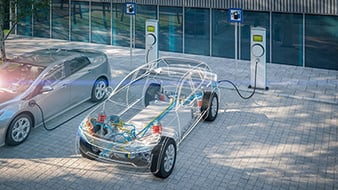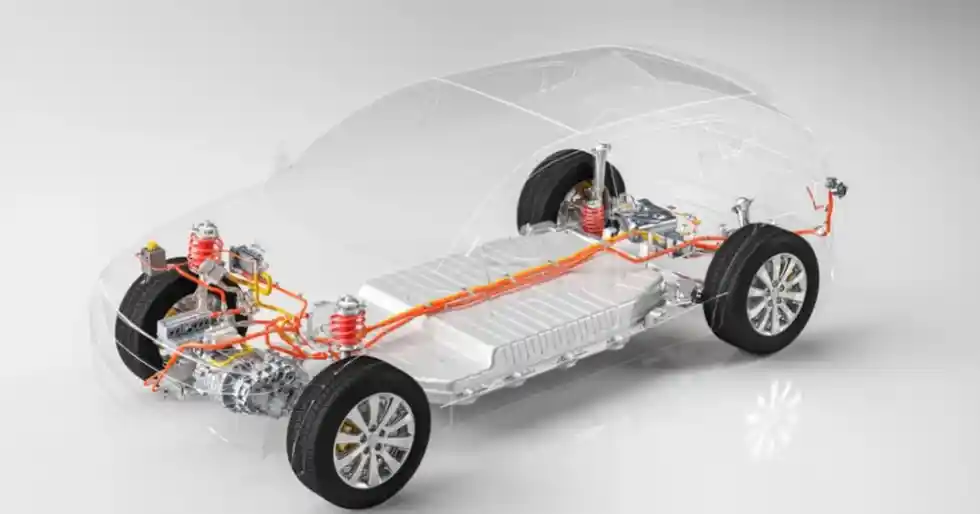Why DER Scalability and Intelligent Coordination Are Critical for Grid Resilience The recent power outages across Spain and Portugal, on April 28, 2025, have highlighted a growing and urgent concern:...
We've talked before about EVs being large mobile batteries. The thought of a high-capacity battery that can change location during the day is an interesting topic that we can cover later. However, it's interesting to note that your EV battery has enormous potential by itself, let alone when aggregated with other EV batteries that are also connected to the grid. Whether it's about your battery backing up your home (V2H) or sending power back into the grid (V2G) - many ask the question: what does it mean for the life of my battery?
The battery will degrade over time. How soon?
True, an EVs battery will degrade over time. However, the battery systems in an EV aren't quite like the ones you'll find in your laptop or with your power tools. EV manufacturers have developed sophisticated battery management software and thermal management systems to protect the life of the car's battery. Everyone knows that a battery will degrade over its many thousands of charge/discharge cycles, but another form of degradation takes place when the battery is idle. This is called "calendar degradation" and can have a significant impact on a battery's lifespan if not managed correctly. It's important to note that, under normal circumstances, your car's battery is designed to give you many years of driving - the standard battery warranty is 8 years or 100,000 miles, and several manufacturers even surpass that standard.
So, will V2G (prematurely) degrade my battery?
A pair of studies, both published in 2017, seemed to provide contradictory information on this subject. One study concluded that V2G usage would shorten the battery's life, whereas the other study indicated the opposite. Subsequent studies and pilots have suggested that it's somewhere in between. Not a satisfying answer?  Consider the following:
Consider the following:
1) Deep discharge and full charge cycles are generally bad for your battery.
2) Storing your battery with a high state-of-charge is significantly worse than storage at a lower state-of-charge (this impacts calendar aging). The longer your battery sits at a lower charge, the better. Your car's manufacturer recommends only charging up to 80-85% and not discharging below around 20%. When you consider these two factors, you can see where V2G can be just a matter of timing - when should your car participate in V2G activities?
A third consideration is the evolution of battery technology, and how the concept of a "million-mile battery" is becoming a reality. It's likely that you'll become tired of your EV well before your EV becomes tired of being a vehicle. The eventuality that EVs will have an operational lifespan that extends far beyond the driver's needs for that specific vehicle is a market reality. This dovetails conveniently with the fact that the collective grid in North America suffers from an acute energy storage shortage as we continue to deploy more renewable energy sources.
Indeed, many companies (auto manufacturers included) are researching and developing technologies that provide "managed charging." Managed charging seeks to optimize the intersection of the driver's needs (having adequate charge when needed), with the need to maximize battery life, along with the need to utilize the car's battery as a grid asset which also provides a means to lower the total cost of ownership for the drive (as your utility purchases power from your storage and offers incentives for participation in load management programs). V2G makes sense when it is blended with the management of these intersections.
V2G technology is evolving quickly, and it involves the collaboration of companies like Kitu Systems, auto manufacturers, electric utility companies, and the owner/driver themselves. That's part of what makes V2G so exciting - never has transportation needed such wide collaboration to achieve so many benefits. We are all working toward exciting solutions - and the world will be better off for it.
Author: Jason Brewington, Kitu's Director of Product Management
Interested in hearing more from Kitu Systems? Subscribe below!
